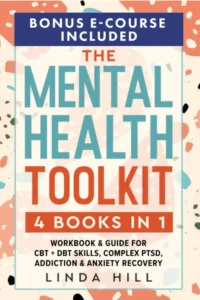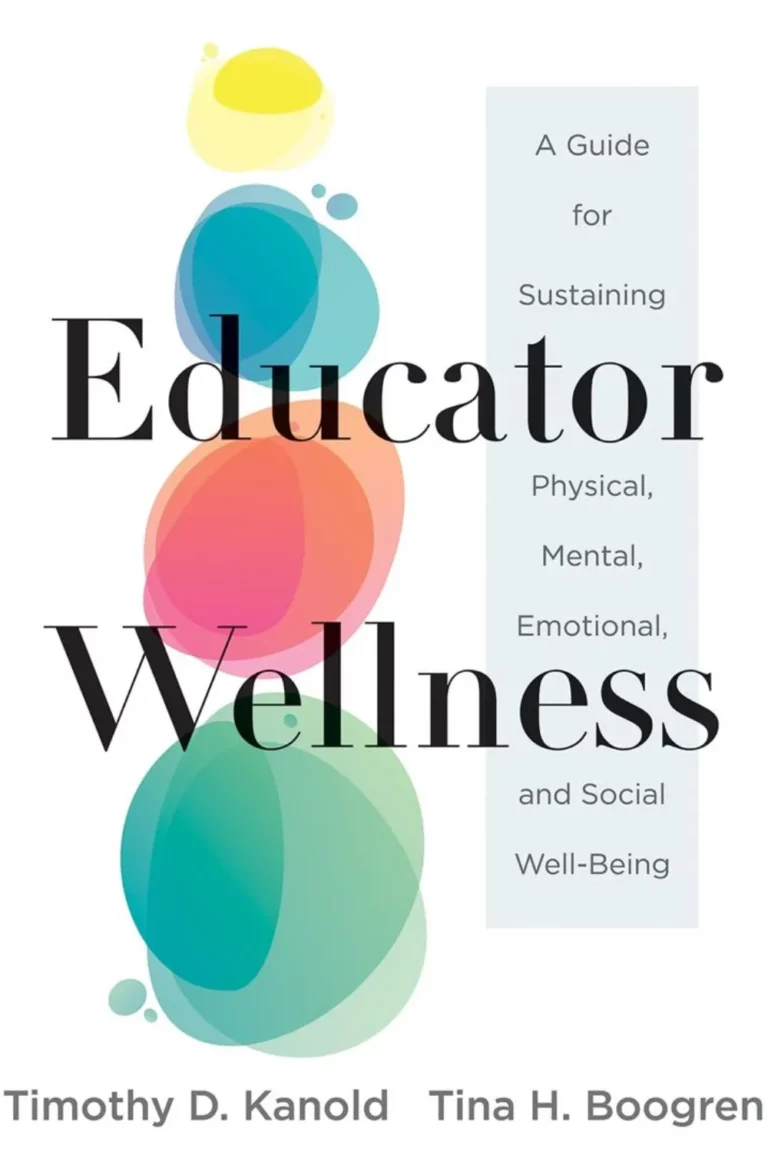Achieving Balance in Mental Health and Wellness
Achieving balance in mental health and wellness is a crucial aspect of living a fulfilling and healthy life.
In today’s fast-paced world, it is common for individuals to experience high levels of stress and anxiety, leading to a decline in their mental and physical well-being.
However, maintaining a balance between mental health and wellness is essential for overall well-being.
It involves finding a harmonious relationship between one’s thoughts, emotions, and physical health.
Achieving this balance can be challenging, especially in a society that often prioritizes productivity and success above all else.
Therefore, it is crucial to understand the importance of taking care of one’s mental health and how it contributes to overall well-being.
This article aims to explore the concept of balance in mental health and wellness and provide practical tips and strategies for achieving it.
By understanding the role of balance in mental health, individuals can take proactive steps towards fostering a healthier and more balanced lifestyle, leading to a more fulfilling and satisfying life.
Table of Contents Achieving Balance in Mental Health and Wellness
Prioritizing self-care for mental wellness
In today’s fast-paced and demanding world, it is crucial to prioritize self-care for the maintenance of optimal mental wellness.
Taking the time to care for oneself not only enhances overall well-being but also plays a significant role in managing stress, reducing anxiety, and preventing burnout.
Engaging in self-care activities such as practicing mindfulness, engaging in regular physical exercise, maintaining a healthy diet, nurturing social connections, and setting boundaries can greatly contribute to maintaining a healthy mind.
By prioritizing self-care, individuals can cultivate a sense of balance and resilience, ultimately promoting their mental wellness and overall quality of life.
Establishing healthy boundaries for balance
Creating and maintaining healthy boundaries is essential for achieving balance in mental health and wellness.
Boundaries act as a protective barrier, allowing individuals to establish limits and communicate their needs effectively.
When boundaries are set and respected, it enables individuals to prioritize self-care and avoid becoming overwhelmed by external demands.
Establishing boundaries involves having a clear understanding of personal values, limits, and priorities.
It requires assertiveness and the ability to say no when necessary, without feeling guilty or obligated.
By setting boundaries, individuals can create a space for self-reflection, self-care, and maintaining a sense of balance in their lives.
This practice contributes to improved mental well-being and enhances overall quality of life.
Practicing mindfulness for inner peace
Practicing mindfulness is a powerful tool for cultivating inner peace and achieving balance in mental health and wellness.
Mindfulness involves intentionally paying attention to the present moment, with an attitude of curiosity and non-judgment.
By bringing awareness to our thoughts, emotions, and physical sensations, we can develop a deeper understanding of ourselves and our experiences.
Mindfulness helps us detach from the constant chatter of our minds and disengage from unhelpful thought patterns that may contribute to stress and anxiety.
Through regular mindfulness practice, we can learn to observe our thoughts and emotions without getting caught up in them, allowing us to respond to life’s challenges with greater clarity and equanimity.
This practice promotes self-compassion, reduces stress, and enhances overall well-being.
Incorporating mindfulness into our daily lives can create a solid foundation for maintaining balance in mental health and wellness.
Seeking professional support when needed
When facing challenges in our mental health and wellness journey, it is important to recognize that seeking professional support can be a valuable resource.
Mental health professionals, such as therapists, counselors, and psychiatrists, have the expertise and training to provide guidance and assistance tailored to our specific needs.
They can offer a safe space for us to explore our thoughts, emotions, and experiences, helping us gain insight and develop coping strategies.
Professional support can be particularly beneficial in addressing more complex or persistent mental health concerns, such as anxiety disorders or depression.
By engaging in therapy or psychiatric treatment, we can access evidence-based interventions and receive personalized care to aid us in our journey towards achieving balance and well-being.
Remember, reaching out for professional support is a sign of strength and self-care.
Incorporating exercise for overall well-being
Regular physical activity is an essential component of achieving balance in mental health and wellness.
Incorporating exercise into our daily routine can have numerous benefits for our overall well-being.
Engaging in regular physical activity not only improves our physical fitness but also positively impacts our mental state.
Exercise has been shown to reduce symptoms of stress, anxiety, and depression, and can even enhance our cognitive function and mood.
Whether it’s a brisk walk, a yoga class, or a high-intensity workout, finding an exercise routine that suits our preferences and abilities is crucial.
By making exercise a regular part of our lives, we can cultivate a sense of empowerment and control over our mental health, promote emotional well-being, and contribute to a more balanced and fulfilling life.
Nourishing the body with nutritious food
In addition to regular physical activity, nourishing the body with nutritious food is another key aspect of achieving balance in mental health and wellness.
The food we consume plays a vital role in providing the necessary nutrients for our bodies to function optimally.
By prioritizing a well-balanced diet consisting of whole, unprocessed foods, we can support our physical and mental well-being.
Foods rich in vitamins, minerals, and antioxidants, such as fruits, vegetables, whole grains, and lean proteins, can provide the essential fuel our bodies need to thrive.
Additionally, incorporating healthy fats, such as those found in avocados, nuts, and olive oil, can support brain function and contribute to improved cognitive performance.
By making conscious choices to fuel our bodies with nutrient-dense foods, we can enhance our mental clarity, boost our mood, and promote overall wellness.
Setting achievable goals for progress
One important aspect of achieving balance in mental health and wellness is setting achievable goals for progress.
Having clear and realistic goals can provide a sense of direction and motivation, helping us stay focused on our journey towards better mental well-being.
When setting goals, it’s important to consider our individual circumstances, capabilities, and current state of mind.
Setting small, incremental goals that are attainable allows us to celebrate each milestone, boosting our confidence and fostering a positive mindset.
Additionally, breaking larger goals into smaller, manageable steps can make the process more manageable and less overwhelming.
By setting achievable goals for progress, we can create a roadmap for personal growth and development, ultimately leading to a more balanced and fulfilling life.
Embracing self-acceptance and self-love
Understanding and embracing self-acceptance and self-love is a crucial component of achieving balance in mental health and wellness.
It involves acknowledging and appreciating our unique qualities, strengths, and imperfections.
Rather than striving for perfection or constantly comparing ourselves to others, self-acceptance encourages us to embrace who we are in the present moment.
This practice fosters a sense of self-worth and allows us to cultivate a compassionate relationship with ourselves.
By practicing self-acceptance and self-love, we can develop a deep sense of inner peace and contentment, fostering a positive mindset and overall well-being.
It requires patience, kindness, and a commitment to nurturing our own emotional and mental health.
In conclusion, achieving balance in mental health and wellness is a continuous journey that requires self-awareness, self-care, and self-compassion.
It is essential to prioritize our mental and emotional well-being in order to lead a fulfilling and happy life.
By incorporating practices such as mindfulness, therapy, and healthy habits into our daily routine, we can work towards achieving a healthy balance and ultimately improve our overall quality of life.
Remember, it is okay to ask for help and to take breaks when needed.
Let us continue to prioritize our mental health and wellness as we navigate through life’s challenges.
FAQ
What are some strategies for achieving a healthy balance between work, social life, and self-care to support mental health and wellness?
Some strategies for achieving a healthy balance include setting boundaries, prioritizing tasks, delegating when possible, scheduling time for self-care activities, maintaining a social support network, practicing mindfulness and relaxation techniques, and seeking professional help when needed.
It’s important to listen to your body and mind, and make adjustments as necessary to ensure all aspects of your life are in harmony.
Finding a balance that works for you may require trial and error, but the key is to be intentional and proactive in taking care of your mental health and overall well-being.
How can individuals identify when they are experiencing an imbalance in their mental health and what steps can they take to address it?
Individuals can identify an imbalance in their mental health by noticing changes in their mood, sleep patterns, appetite, and energy levels.
They may also experience increased anxiety, irritability, or difficulty concentrating.
To address it, they can seek support from a therapist, counselor, or mental health professional.
Engaging in self-care practices such as exercise, mindfulness, and maintaining a healthy routine can also help.
It’s important to prioritize mental health and not hesitate to reach out for help when needed.
In what ways can physical activity and exercise contribute to achieving balance in mental health and wellness?
Physical activity and exercise can contribute to achieving balance in mental health and wellness by releasing endorphins that improve mood, reducing stress and anxiety levels, promoting better sleep, increasing self-esteem and confidence, and providing a healthy coping mechanism for challenges.
Regular physical activity can also help in managing symptoms of depression and anxiety, improving cognitive function, and enhancing overall well-being by promoting a sense of achievement and control over one’s health.
Additionally, exercise can create opportunities for social interaction and connection, leading to a more balanced and holistic approach to mental health and wellness.
How can mindfulness and meditation practices help individuals achieve a sense of balance and peace in their mental health?
Mindfulness and meditation practices encourage individuals to be present in the moment, allowing them to observe their thoughts and emotions without judgment.
This can lead to increased self-awareness, reduced stress, improved focus, and better emotional regulation.
By incorporating these practices into their daily routine, individuals can cultivate a sense of balance, inner peace, and overall mental well-being.
What role does nutrition and diet play in supporting mental health and achieving overall balance in wellness?
Nutrition and diet play a crucial role in supporting mental health and overall wellness.
Consuming a balanced diet rich in nutrients like omega-3 fatty acids, vitamins, and minerals can help regulate neurotransmitters and improve mood.
Additionally, maintaining a healthy diet can reduce inflammation, decrease oxidative stress, and support brain function.
Eating whole foods, staying hydrated, and avoiding excessive sugar and processed foods can positively impact mental health, promote emotional well-being, and contribute to achieving overall balance in wellness.








